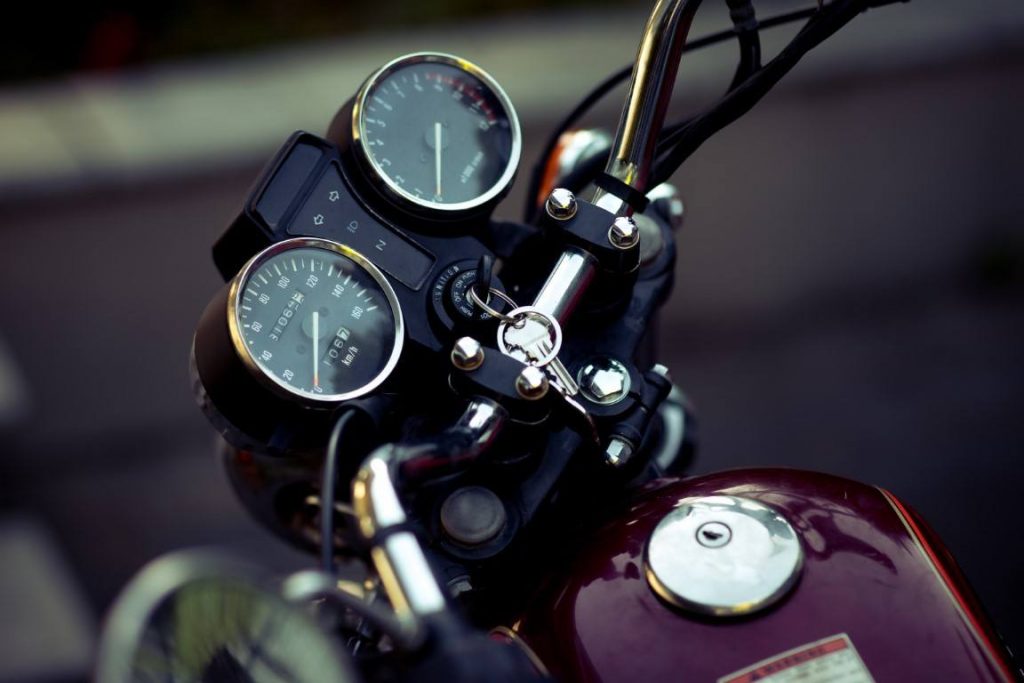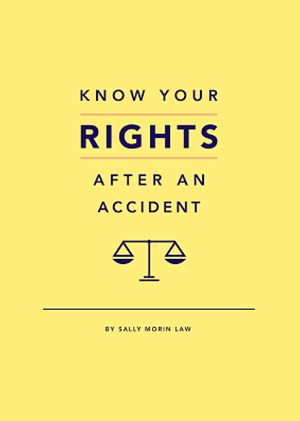Tips for Riding Your Motorcycle Safely in the Rain
Motorcycling is inherently more dangerous than driving an automobile. However, millions of Americans enjoy the free feeling of cruising the streets atop their two-wheeled machines with nothing between them and open road. And millions of Americans do it safely. Here on the West Coast, we can generally ride year-round (unlike our friends in colder climates – Um, Hello, Minnesota! 😉 have Mother Nature to contend with.
And while California is generally dry, when the fog or rains do come, they’re often heavy and crop up fast. No matter how well you plan your ride there will come a time when you get caught in the rain. So here are some of the best tips for riding your motorcycle safely in the rain from kitting out yourself and your ride to handling your machine in inclement weather.
Remember, the number one rule of riding safely in bad weather is to slow down. It reduces the risk of slippage and gives you the increased reaction time you need to avoid accidents.
Buy the Right Rain Gear
High visibility rain gear not only keeps you dry but helps you stick out in low light and low visibility situations. Automobile crashes are common enough for motorcyclists and rain, fog, and mist can all increase the risk of being clipped by an unaware driver. So make them take notice. Also, a full face helmet or shield is a must–those little drops can sting like pellets when you’re zipping along at speed.
Ride on the Right Tires
Long-lasting motorcycle tires seem like a good investment when you’re buying them but the rubber they are made from is stiffer and more rigid. This means that they don’t grip the road as well. When roads are wet you want all the traction you can get. Look for tackier tires. You may need to replace them more often but they might keep you from dumping your bike on slick roadways.
Brake Smartly
In slick conditions brake gradually—pumping the brakes if necessary—to avoid your tires locking up. Also, use your rear brake more than you would in dry conditions. It’s easier to correct a skid if it’s your rear tire sliding than your front. Also be aware that water will affect how well your brakes grab, increasing the amount of stopping distance you need.
Increase Your Visibility
Being seen is important but so isn’t the ability to see. Riding head first into the rain is going to dramatically decrease your ability to spot hazards in the roadway. Products like Rain-X can help wick rainwater off your plastic face shield so you can see better. Also, you may want to consider swapping out your visor with a yellow one. These increase the contrast and allow you to see better in low light.
Kit Out Your Bike
Consider swapping your headlamps out with higher candlepower bulbs to increase their light output. Also, installing a brake light modulator can help drives see you from behind. And if you don’t already have some type of storage on your ride consider saddlebags or a cargo box in which to keep rain gear so you’ll be ready wherever and whenever.
Hazards to Beware of When Riding Your Motorcycle in the Rain
There are a number of hazards you need to be aware of when riding in the rain. These include:
- Painted Lines—The paint creates a very slick surface when wet. Use caution when leaning into turns.
- Concrete Surfaces—Parking lots, ramps, garages and the like are often paved with smooth concrete that doesn’t grip like asphalt. Always slow down.
- Oil on the Road–Oil accumulates on asphalt and turns roadways into slick rivers of sludge within the first few minutes of rainfall. Wait for 20 minutes or an hour before hitting the road.
- Manhole Covers and Other Metal Surfaces—Manhole covers, metal grating, metal plates covering road work the ramps leading up to train tracks (and the track themselves – Ugh! Those MUNI tracks!) all present a tremendous hazard for riders. Always cross these surfaces slowly and straight up.
- Lightning—Riding your motorcycle in the rain can be safe but riding in a thunderstorm is not—especially if you’re riding on a ridgeline or a flat plain. Always find someplace safe to stop (never under trees) when you spot lightning.
You Can’t Control the Other Guy . . .
As a San Francisco, Oakland San Jose and Los Angeles motorcycle accident lawyer I’ve helped many clients who have been injured in motorcycle crashes involving automobiles. In the majority of those cases it’s the driver of the car that’s at fault, not the motorcyclists. And while you can’t control other drivers on the road you can increase your chances of getting home safe and sound by riding smartly in any weather conditions. Use the tips above to ride your motorcycle safely in the rain and if you ever are in an accident I’m here to help. Call my legal team of expert motorcycle accident attorneys at 415-413-0033 or fill out our quick online form to get help now!











